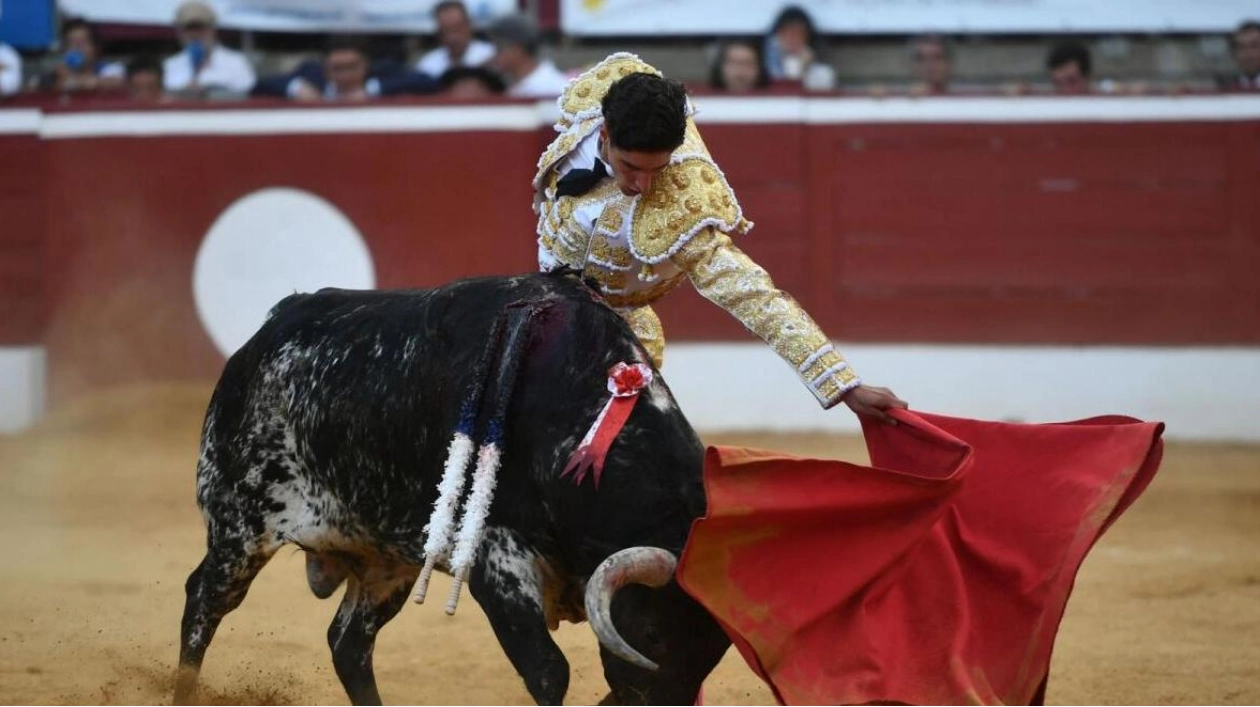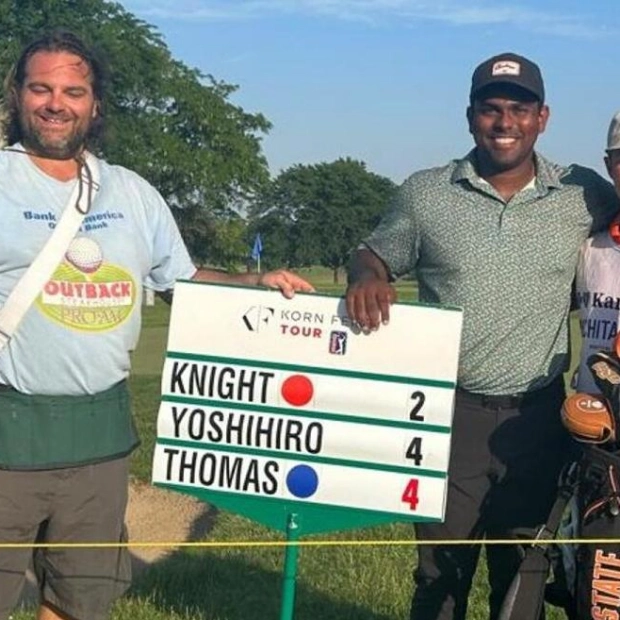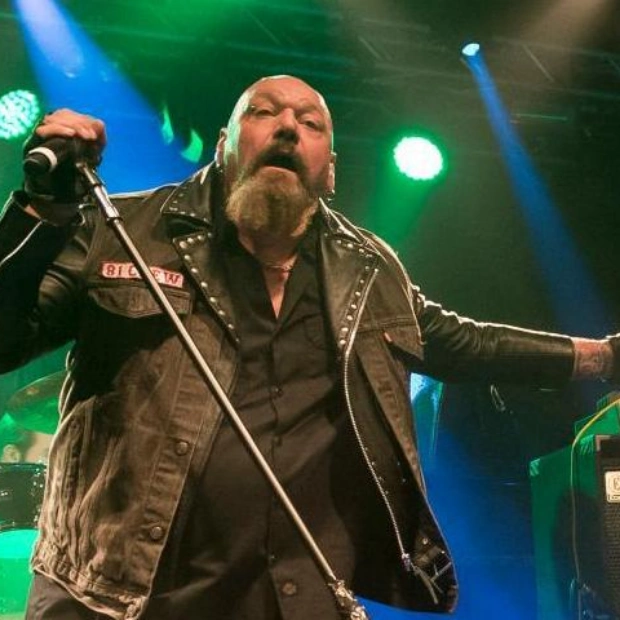French matador Landais Yon Lamothe executes a pass on a Garcigrande bull during the La Madeleine festival at the Plumacon arena in Mont-de-Marsan, southwestern France, in July last year. AFP File Photo
France's upper house of parliament is set to debate a bill this week aimed at banning children under 16 from attending bullfights, a move that has sparked tensions and enraged supporters of the centuries-old tradition. French law prohibits animal cruelty, and bullfighting is banned in most parts of the country. However, it is permitted in the south, particularly in cities like Bayonne, Nimes, and Beziers, where it is considered a cultural heritage, despite protests from activists.
"The goal is to eradicate bullfighting. If we don't instill the values of bullfighting in children, they won't attend bullfights, and the tradition will cease," explained Christine Banuls, a member of the La Embestida bullfighting association in Bouillargues, a southern town.
Although public sentiment leans towards banning bullfighting in France, a similar attempt failed in 2022 due to concerns about upsetting the southern regions. Introduced by centrist Samantha Cazebonne, the new bill seeks to prohibit bullfighting and cockfighting in the presence of children under 16 to "shield them from exposure to violence." Fellow senator and veterinarian Arnaud Bazin added, "Allowing these traumatic events to occur in front of children contradicts the rest of our legislation."
However, the bill, scheduled for debate on Thursday in the right-wing-dominated Senate, is not expected to pass. Conservative senator Max Brisson opposes the bill, arguing it "undermines local freedoms." Many towns reliant on bullfighting for tourism view the culture of bull breeding and the spectacle—idolized by artists and authors from Ernest Hemingway to Pablo Picasso—as integral to their way of life.
On a rainy afternoon in mid-October, hundreds of spectators gathered in Bouillargues to witness young aspiring bullfighters participate in one of the season's final bullfights. Three Spanish novilleros, novice bullfighters not yet named matadors, clad in gleaming attire, dispatched six young bulls from French farms. Among the nearly full stands, a dozen teenagers and children observed the novillada, a bullfight featuring young bulls, accompanied by the brass band's music.
One parent, who identified himself only as Maxime, brought his eight-year-old son to the event. "I was concerned the bull's death would upset him, but he wasn't particularly shocked," said the 36-year-old. The father expressed indifference to the proposed ban. "If the bill passes, we simply won't attend anymore," he stated.
Ludivine Boyer, a spectator accompanied by friends, defended the tradition, including bringing her friend's four-year-old daughter. Boyer emphasized the importance of allowing children to attend. "Yes, it's intense, but so is seeing a cat get hit by a car," she said. "Taking children to bullfights is a parent's choice and part of their education. We live in a country of freedom."
France is one of only eight countries that still permit bullfighting. Colombia plans to outlaw the practice by 2027. Most regions where bullfighting is legal allow minors to attend, though they must sometimes be accompanied by adults. Exceptions include the Spanish region of Galicia, which prohibits children under 12 from attending.
Julien Lescarret, a former bullfighter from Bayonne, dismissed the notion that violence could traumatize young audiences. "Children have a very healthy understanding of death," he said, encouraging parents to expose their children to bullfights. Marc Jamet, who trains a dozen students aged 6 to 22 at a bullfighting school in Nimes, called a ban on minors "absurd." Elias, a 13-year-old training in Nimes to become a bullfighter, attended his first bullfights at age three. "When I was young, I thought: that man in the ring could be me," he recalled.
The Union of French Bullfighting Towns offers special prices for young spectators and this year provided tickets to 2,300 people under 25. Anthony Sorbet, 25, founder of the Jeunes Aficionados du Sud-Ouest collective, uses social media to introduce young people to the "full range of emotions experienced in the bullring." "It's not just about violence. When you're young, it's more about the intensity of the moment," he explained.
Source link: https://www.khaleejtimes.com






